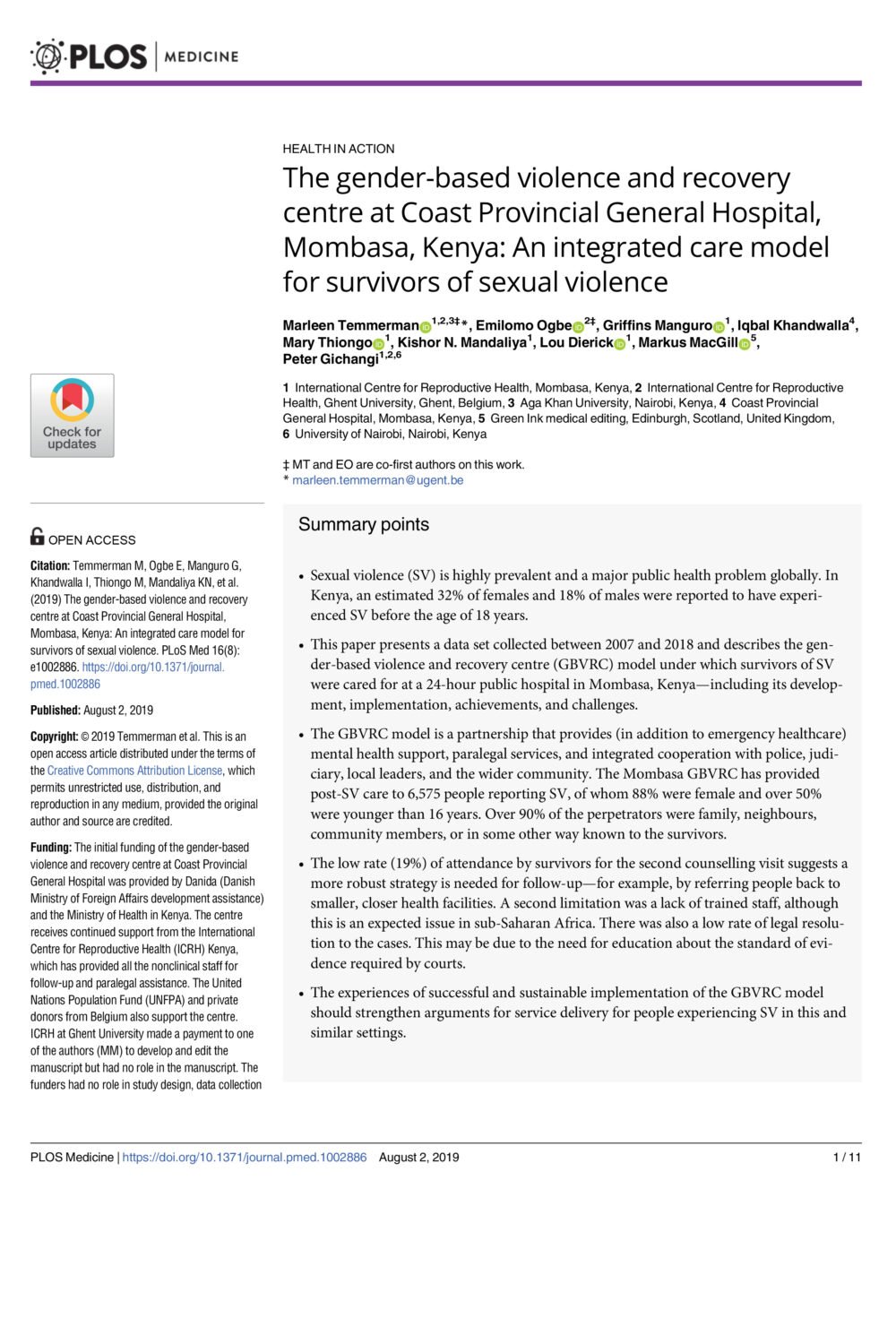Introduction
Sexual violence (SV) is a major public health problem globally [1,2]. Although both sexes suffer SV, women are disproportionately affected [2]. This may reflect underlying harmful gender norms within many societies [3,4]. SV is associated with numerous adverse health outcomes, including HIV and other sexually transmitted infections (STIs), unintended pregnancy and unsafe abortions, and miscarriage, preterm birth, and stillbirth [3,5–7]. SV is also associated with mental health outcomes, including posttraumatic stress disorder, anxiety and depression, and an increased risk of ideated or attempted suicide [8–10]. The availability and accessibility of quality post-SV care is a challenge in all settings, but especially in low- and middle-income countries. In many such settings, management of SV is focused on physical injuries, STIs, and pregnancy [8].
Longer-term follow-up with psychosocial counselling and legal support is suboptimal, and the strengthened integration of these services is needed to improve overall health and life outcomes [11–13]. Although uptake of postSV services has improved recently, rates of reporting to the police and legal follow-up of cases is about 7% globally [14]. Gender-based violence centres hold great potential to improve not only the health but also the legal follow-up and outcomes of SV survivors by strengthening referrals to the police and other legal channels and by collecting good quality forensic specimens [15,16].
The Kenya context.
Studies on SV in Kenya and other African countries estimate a high prevalence among young boys and girls. A multicountry survey conducted in 2010 reported that, in Kenya, 32% of females and 18% of males experienced SV before the age of 18 years [17]. In the other six countries in the study, SV prevalence ranged from 4.4% among females in Cambodia to 37.5% among females in Eswatini. A similar, crosssectional household survey conducted among young women aged 15–24 years in Kenya and Zambia reported overall SV rates of 21.4% among females under the age of 18 years [18]. A number of progressive national policies to address SV have been instituted in Kenya. However, implementation challenges such as a lack of comprehensive community structures for long-term follow-up, inadequate health-facility infrastructure for comprehensive SV services, poorly collected forensics, and poor linkage between health and legal sectors [19,20] remain barriers to effective SV response.
